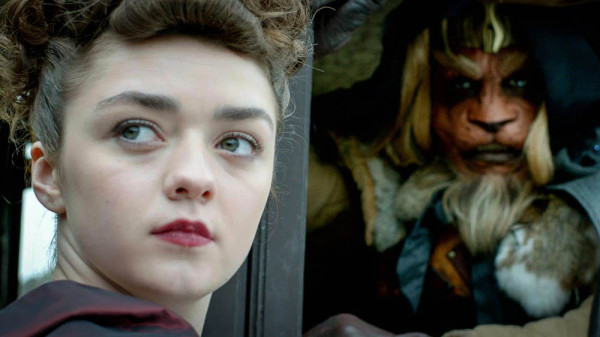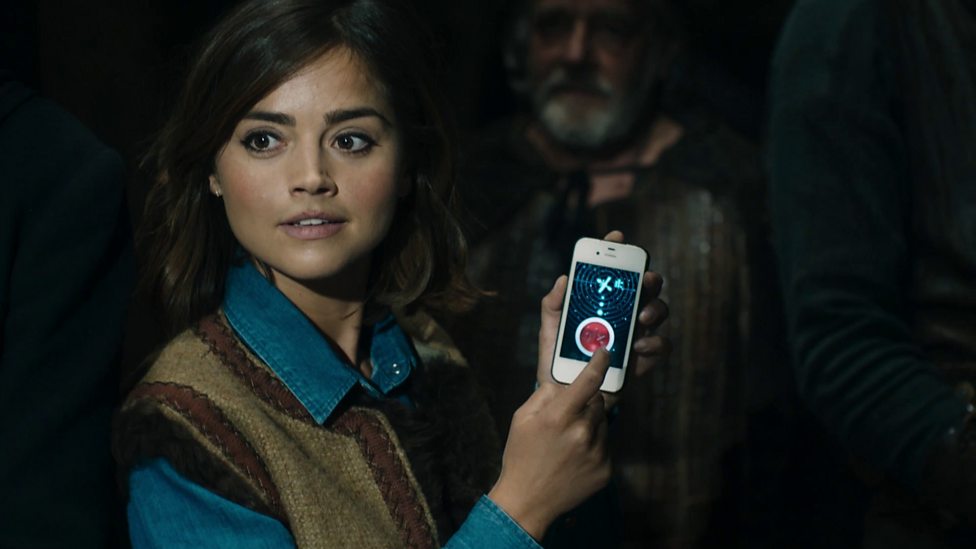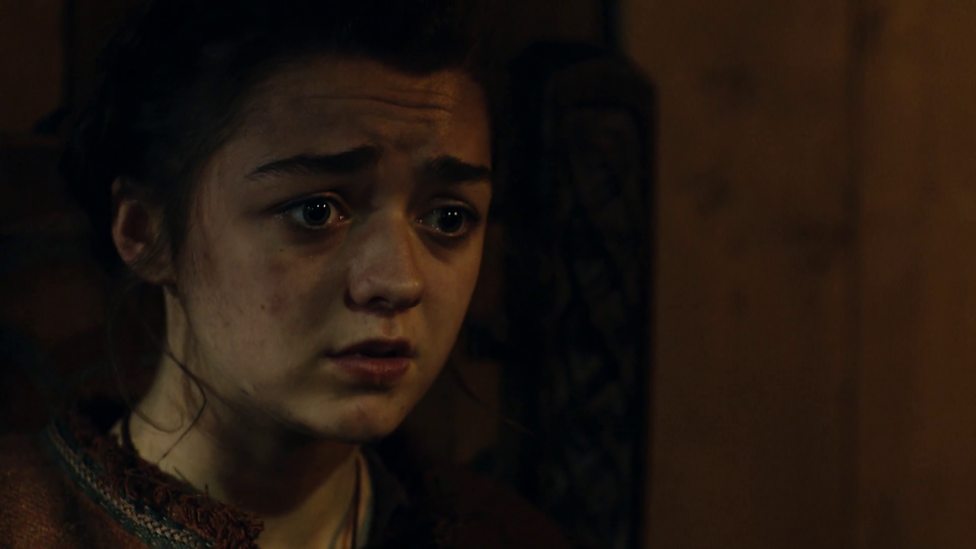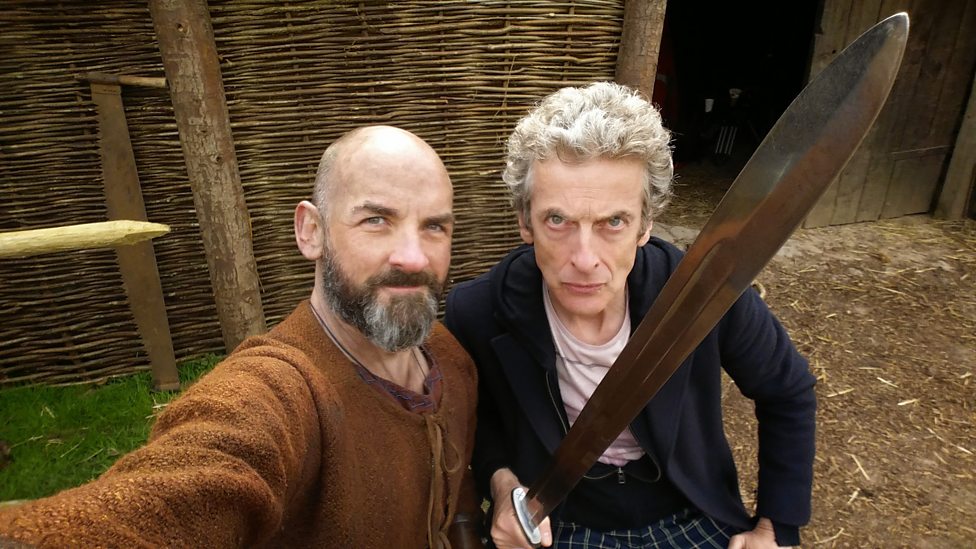The Force Awakens opens
with a truly beautifully directed scene, in which the villains'
credentials are set out with a brutal massacre, and a single
stoomtrooper stands among the carnage, unable to act. We can't see
his face, he is completely indistinguishable from his fellows save
for the blood smeared on his faceshield by his dying comrade. You can
tell exactly what the trooper is thinking at every moment. It's a
masterful example of silent acting combined with excellent direction.
Yes, The Force Awakens is derivative, so similar to its predecessors, particularly the original Star Wars, that it's practically a remake. The script is straightforward, some of the performances are very broad, and it trades in nostalgia over originality. Still, I don't know about you, but that's exactly what I was after. Like Terminator 5 and Jurassic World, the seventh episode of Star Wars is made for people who want to experience their favourite worlds again, reliving the classic movies. None of these franchises can afford to simply do this again, and need to go in new directions with their upcoming sequels, but for now, this works. The Force Awakens is a perfect reproduction of what made the original Star Wars so enjoyable, with just a little added to make it more palatable for modern audiences.
It's a wonderful step forward to have the main protagonists in the year's biggest blockbuster be a black man and a woman, and for them to be supported by a middle-aged couple. John Boyega is excellent in the role of Finn, the stoomtrooper who overcomes years of conditioning and abandons the First Order, the Nazi-esque successor to the Galactic Empire. He's a likeable hero with a strong development from terrified deserter to true hero, but he is overshadowed once the final act is set up and the white people dominate the scenes. So, a big step forward, but not without its flaws. The only other major role for an actor of colour is Lupita Nyong'o, who provides the voice of the venerable alien Maz Kanata. She's excellent in the role, but I question the wisdom of hiding the one other prominent black face (not to mention one of the most beautiful faces in the world) behind a CGI reptile.
Daisy Ridley shoulders some of the more perfunctory dialogue, but again, is a hugely likeable and believable hero. Yes, her story deliberately parallels Luke Skywalker's, but it's refreshing to have the hero of the piece, and the most impressive character, be a young woman, and this adds a new angle to the story. It's not only going to be little white boys who can see themselves in the heroes on screen. After all, even though Carrie Fisher was impressive in the original trilogy, she was nonetheless sat down out of the way while Luke saved the Galaxy. Rey gets to be the most powerful potential Jedi in the series, almost absurdly so, displaying incredible Force ability without a bit of training. Staggeringly, there are people out there who find this the hardest thing to believe in a film about magic space knights – obviously it's impossible that a woman could be the best in swordfight.
One thing in the prequels' favour was a sense of scale sometimes missing from the originals. The Force Awakens has that scale, without ever crossing the line to CGI overload. There are hectic space battles and tons of monsters, but it's never incoherent or hard to follow. I understand that much of what has transpired between Return of the Jedi and this movie is very similar to developments in the old expanded universe books and comics, but like the majority of the film's vast audience I know little about that. I can say that I like that things have clearly not been easy since the Battle of Endor, and that the Empire didn't just miraculously vanish overnight without consequence. The First Order is clearly a powerful organisation, the New Republic is worryingly weak, and their relationship with the Resistance uncertain. Leia is now a General, Han is once again living on the edge of the law, and life is still shitty for most people in this Galaxy. It's still an old, broken, dangerous world, populated by bizarre creatures, just as it should be.
Some of it is, perhaps, too familiar. Rey is drawn into theRebellion Resistance after an
attack on her home, the desert planet Tatooine
Jekku. Han and Chewie take time away from their smuggling to help
take the fight to the Death Star
giant planet that eats suns. There's a critical confrontation over a
huge crevasse. I don't think anyone loses an arm, though. But this
just feels like Star
Wars through and
through, and while some dislike a certain familial relationship
between characters being revealed, I feel that it's a confident
inversion of the classic films' set-up. There's a deliberate sense of
history repeating. Adam Driver's character, the villainous Kylo Ren,
is a deliberately weak despot, trying hard to live up to the example
of his idol, the long dead Darth Vader. The character works because
of his weakness, not in spite of it. Equally good is Domhnall
Gleeson, whose General Hux is the young, modern equivalent of Grand
Moff Tarkin, with extra scenery chewing. Of course, the First Order
recruits its officers from the best schools in England. There are
little hints of life in this twisted order; for example, the
revelation that the stormtroopers are made up of clones, recruits and
children brought up as soldiers, with disagreement between officers
which is the best method.
There are flaws, of course. Gwendolyn Christie is wasted as super-trooper Captain Phasma. Oscar Isaac's character, Poe Dameron, is written out early on, before randomly reappearing later in a lazy rewrite. But this is exciting, nostalgic fun, surprisingly funny, and if you do somehow manage to get bored, you can play “spot the cameo.” And BB-8 really is the cutest robot ever.
Yes, The Force Awakens is derivative, so similar to its predecessors, particularly the original Star Wars, that it's practically a remake. The script is straightforward, some of the performances are very broad, and it trades in nostalgia over originality. Still, I don't know about you, but that's exactly what I was after. Like Terminator 5 and Jurassic World, the seventh episode of Star Wars is made for people who want to experience their favourite worlds again, reliving the classic movies. None of these franchises can afford to simply do this again, and need to go in new directions with their upcoming sequels, but for now, this works. The Force Awakens is a perfect reproduction of what made the original Star Wars so enjoyable, with just a little added to make it more palatable for modern audiences.
It's a wonderful step forward to have the main protagonists in the year's biggest blockbuster be a black man and a woman, and for them to be supported by a middle-aged couple. John Boyega is excellent in the role of Finn, the stoomtrooper who overcomes years of conditioning and abandons the First Order, the Nazi-esque successor to the Galactic Empire. He's a likeable hero with a strong development from terrified deserter to true hero, but he is overshadowed once the final act is set up and the white people dominate the scenes. So, a big step forward, but not without its flaws. The only other major role for an actor of colour is Lupita Nyong'o, who provides the voice of the venerable alien Maz Kanata. She's excellent in the role, but I question the wisdom of hiding the one other prominent black face (not to mention one of the most beautiful faces in the world) behind a CGI reptile.
Daisy Ridley shoulders some of the more perfunctory dialogue, but again, is a hugely likeable and believable hero. Yes, her story deliberately parallels Luke Skywalker's, but it's refreshing to have the hero of the piece, and the most impressive character, be a young woman, and this adds a new angle to the story. It's not only going to be little white boys who can see themselves in the heroes on screen. After all, even though Carrie Fisher was impressive in the original trilogy, she was nonetheless sat down out of the way while Luke saved the Galaxy. Rey gets to be the most powerful potential Jedi in the series, almost absurdly so, displaying incredible Force ability without a bit of training. Staggeringly, there are people out there who find this the hardest thing to believe in a film about magic space knights – obviously it's impossible that a woman could be the best in swordfight.
One thing in the prequels' favour was a sense of scale sometimes missing from the originals. The Force Awakens has that scale, without ever crossing the line to CGI overload. There are hectic space battles and tons of monsters, but it's never incoherent or hard to follow. I understand that much of what has transpired between Return of the Jedi and this movie is very similar to developments in the old expanded universe books and comics, but like the majority of the film's vast audience I know little about that. I can say that I like that things have clearly not been easy since the Battle of Endor, and that the Empire didn't just miraculously vanish overnight without consequence. The First Order is clearly a powerful organisation, the New Republic is worryingly weak, and their relationship with the Resistance uncertain. Leia is now a General, Han is once again living on the edge of the law, and life is still shitty for most people in this Galaxy. It's still an old, broken, dangerous world, populated by bizarre creatures, just as it should be.
Some of it is, perhaps, too familiar. Rey is drawn into the
There are flaws, of course. Gwendolyn Christie is wasted as super-trooper Captain Phasma. Oscar Isaac's character, Poe Dameron, is written out early on, before randomly reappearing later in a lazy rewrite. But this is exciting, nostalgic fun, surprisingly funny, and if you do somehow manage to get bored, you can play “spot the cameo.” And BB-8 really is the cutest robot ever.


















